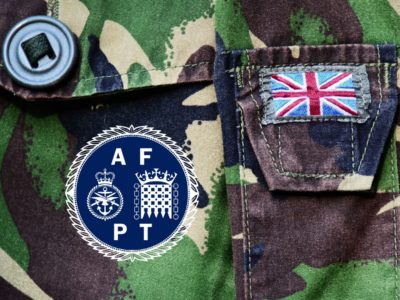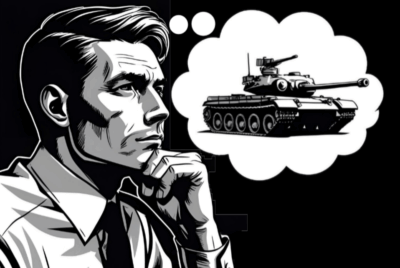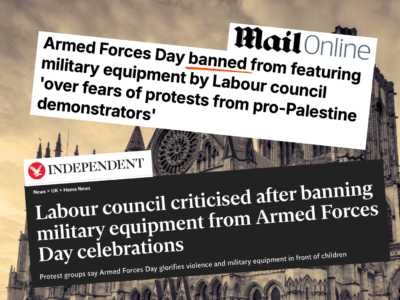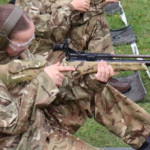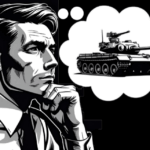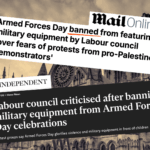Recently….on the Olympics, strike-breaking and the armed forces
ForcesWatch comment
In an article called 'Olympic Medals for the Military', Professor Michael Clarke, director-general of the Royal United Services Institute argues that the involvement of the military in the Olympics will bring in "a new relationship between the Armed Forces and the general public", in which the former appear "a normal and average part of a relaxed and self-confident British society.” Is normalisation of the military within everyday life a good thing? Is it the mark of a "self-confident British society" or would a better indicator of that be a far less visible presence of the military?
Will the Olympics normalise the military ‘on the streets’?
Clarke notes that “The Chiefs should bottle that spirit for the difficult years to come” and that such “goodwill” will be useful in post-Afghanistan roles, which could include greater involvement in “home security”.
Is normalisation of the military within everyday life a good thing? Is it the mark of a “self-confident British society” or would a better indicator of that be a far less visible presence of the military?
The army being seen as having saved the day after the G4S failure is only one way in which the Olympics will have escalated the scale of expected military involvement in civilian events. Such involvement will become the expected norm for the next big public event, here and elsewhere. Indeed, the Home Affairs Select Committee stated in a report on the G4S debacle, that, “in the planning of future major events, the military might more appropriately be considered first choice rather than a back-up.”
The armed forces as strike-breakers?
With a note of caution, Clarke does suggest that a greater presence “on the street” would be unpopular among Chiefs, politicians and the (Metropolitan) police, so “should be seen as a one-off military operation” rather than paving the way for more general involvement in civilian situations such as public sector strikes.
Although he fails to note that a greater street presence is also likely to be unpopular with the general public, he does point out, “the military’s success at the Olympics was also a reflection of the success of the Games as a whole. Public order works on the law of averages. A happy crowd is self-policing and easy to handle. A curious crowd, or even more a crowd in a hurry, is a different matter, and the troops never had to deal with that.” In a more stressful situation, there would be unlikely to be such ‘goodwill’ towards the presence of the armed forces, who may be armed and may well be forceful, within a civilian setting.
With the success of the Olympics in the air, politicians appear to have been making contingency plans in the event of strikes by public sector unions. Dismissing plans to involve the armed forces as ‘political posturing’, ‘defence sources’ do not seem to have been impressed. Even less impressed are the unions who have called the reported plans ‘provocative’ that will ‘politicise the role of the armed forces’
Sporting event or military operation?
Each of the forces websites details their involvement with the Olympics adding weight to the conception that the sporting event was one big ‘military operation’. The Navy evens claims that the “million strong turnout” for the atheletes parade was “to thank the nation’s Olympians – and the Armed Forces.“
The MoD state that “over 170 members of the Armed Forces acted as flag-bearers and flag-raisers for ceremonies at both the Olympic and Paralympic Games, taking part in over 100 ‘country welcome’ ceremonies and 805 victory ceremonies.”
Faith and community groups seeking a peaceful legacy from the Olympics
With an alternative view of the symbolism of the military dimension in the Olympic ceremonies, Pat Gaffney of Pax Christi, one of the instigators of 100 Days of Peace which encouraged initiatives around the idea of a peace legacy for the Olympics, writes, “we publicly challenged LOCOG about the use of armed services in the medal ceremonies, pointing out that parading military personnel would give a strongly nationalistic message to what is an international gathering and highlighting the hypocrisy and insensitivity of using the armed forces in this way when so many in our world live with the reality of war and conflict which is driven by the military. While they could not fully agree with us it is interesting to note that these ceremonies have not been as militarised as they might have been.”
The peace legacy project included “helping teachers to see the depth to which a culture of militarism permeates our lives, and the Games themselves, as a way of setting out the educational challenges. Teachers valued an opportunity to articulate their own concerns and share the difficulties of confronting militarism in schools. They also valued the ‘depth’ we were giving to the Olympics – a change from designing sports gear and menus for Olympic athletes!”
See more: military in society, Olympics
Like what you read?
> Sign up for our newsletter or blog notifications
> Support our work – from just £2 a month

